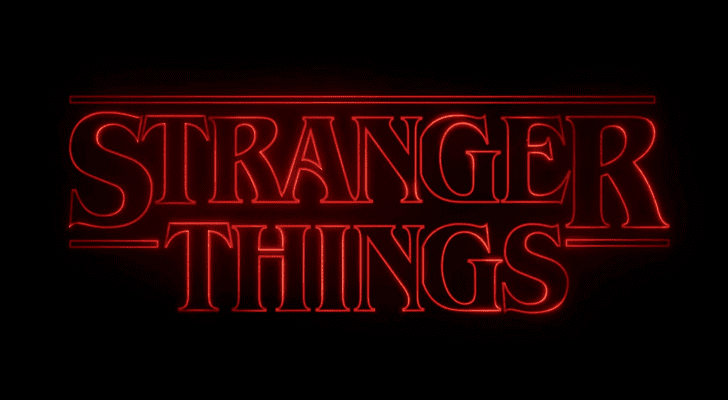
So before the election I was in a series called The Gospel According to Stranger Things.
It’s a blog series about Netflix great breakout new show, that has been met with lots of both critical and popular success, and I’m trying to step back and ask the question, “What made this so great? Why did this resonate with us so much?”
And today I want to suggest an idea I’ve been considering for a while.
Part of the power of ST, was that, unlike so many other kinds of sci-fi or horror thrillers, it doesn’t disenchant the world that it introduces at the end, nor does it make the world altogether different than the one we regularly experience.
In other words, often stories like this end with a kind of Scooby-Doo formula.
The demon/monster/ghost is captured and the mask is pulled off revealing a greedy banker. There are no real monsters to fear, they were only dreaming, or that person was mentally ill and had imagined it all.
Or on the flip side, in a truly enchanted story, what happens is that the gap will consistently keep widening between the reality we live in and the story itself.
Sure you can enjoy it, if you can maintain your suspended disbelief, but when the credits roll you quickly return to the world you live in, the one without elves, dragons or wizards.
But part of the charm of ST, is that when you watch the first few episodes, you aren’t sure what to think of it.
What kind of story is this? What kind of universe do these boys live in?
And as the story slowly unfolds you discover it is an enchanted one, but unlike other enchanted stories, Stranger Things works quickly to close the gap between what is imagined and what is real.
And the way they do this is through the blend of science and magic.
Science is Magic
There’s this one scene right in the middle of the season, soon after it has dawned on you, the viewer, that what you’re watching is a fairy tale.
It’s not a thriller about a mother who’s going through psychosis as they look for her lost son, something haunting and spooky is really happening.
And right then, these 12 year old boys go and talk to their Jr. High science teacher.
The science teacher explains creatively that what they are asking about is called inter dimensional travel, and while not currently possible, there are some conceivable things that could make it happen.
It’s not magic, it’s science.
But those things are more closely related than we think.
Arthur C. Clarke’s once famously said, “Every sufficiently advanced technology is indistinguishable from magic.” But because we live in a disenchanted, and wildly technological world, that seems like a hard idea to swallow.
Of course, my new smart phone isn’t magic, it’s technology, we think to ourselves as we dim the lights in the den with our voice controlled smart homes and then tell Alexa to play Mozart.
But in the words of Andy Crouch:
“The power to summon up such otherworldly, immutable beauty without commensurate effort is an example of what we once would have called magic. The dream of magic is to have power, the ability to make something of the world, without suffering, without relationship and without risk, which are all different ways of saying the same thing. We moderns think of magic as something postmodern, superstitious and foreign. But in fact a more technological age is devoted to magic. The truth is that we are far more dependent on seemingly effortless power than the most “primitive” society ever was.”
The problem as I see it as that we have poor definitions of both technology and magic.
Magic isn’t what you see at shows in Vegas or at a little kid’s birthday party, Magic for thousands of years was the way that you controlled the world around you.
And sometimes it worked and sometimes it didn’t.
But eventually we stopped using it…or at least we thought we did.
Naming Your Religion
C.S. Lewis, in his book, The Abolition of Man, actually pointed out that the pursuit of magic and science began at the same time.
The common story that we tell ourselves is that people used to believe in magic, and then science came in and swept it (along with religion) away.
But those who know the Medieval period know better. Both disciplines were pursuits in learning how to understand and control the world around us.
And here is the subtle genius of Stranger Things. It is a perfect blend of science and supernatural.
Scientist tore some kind of portal into another dimension filled with monsters. They were trying to develop some new kind of weapon for their cold war with Russia and found themselves staring at something beyond their comprehension or control.
What I appreciated so much about ST, was that it tried to integrate parts of our shared conceptions of reality that we rarely are willing to bring together.
David Dark points out that this kind of integration is what is at the heart of all of our attempts at religion, in fact taking these steps toward integration is what it means to come awake to what your religion actually is:
Like our religion, our liturgy (leitourgia, the work of the people) is never more nor less than what we actually do with our energies. And when we try to divide up the world in such a way that a suicide bombing is religiously motivated but the crowd killing of alleged anonymous militants in a drone strike, for instance, is borne of the always reasonable demands on national security, we leave dysfunctional orderings of human life, the bad religion we underwrite with our getting and spending, our voting, our tax dollars and our consuming unchallenged. We let ourselves off the hook when we imagine we can keep any behavior outside of the sphere of our alleged religious commitments, the stories to which we pledge our allegiance whether consciously or unconsciously with everything we do and don’t do.
So what does not letting ourselves off the hook with technology and our thirst for control look like?
What does it look like to name our religious commitments to what the vast majority of human history would rightly describe as magic?
That’s a great question: I’m glad I asked it.
Next up: The Cost Of Progress









